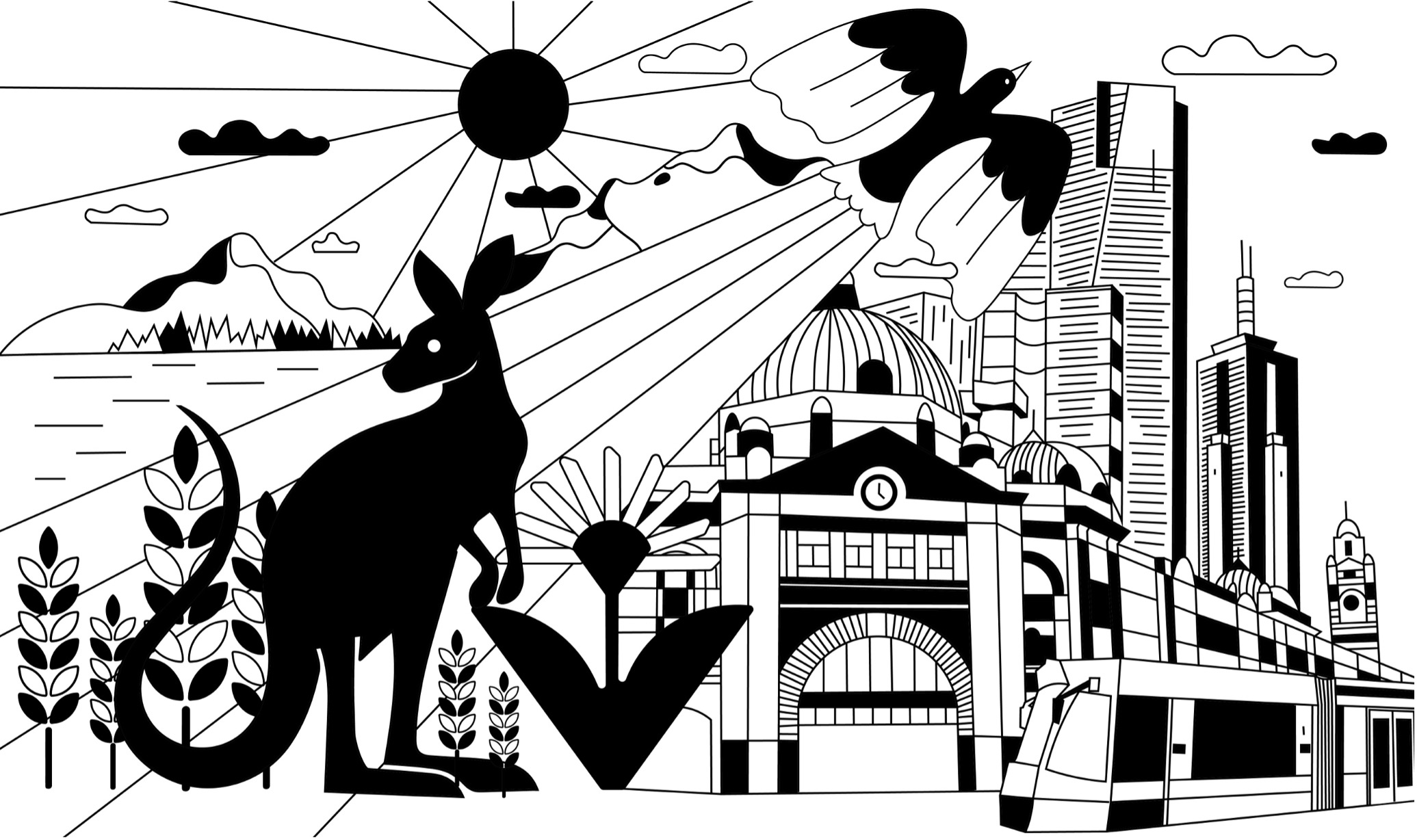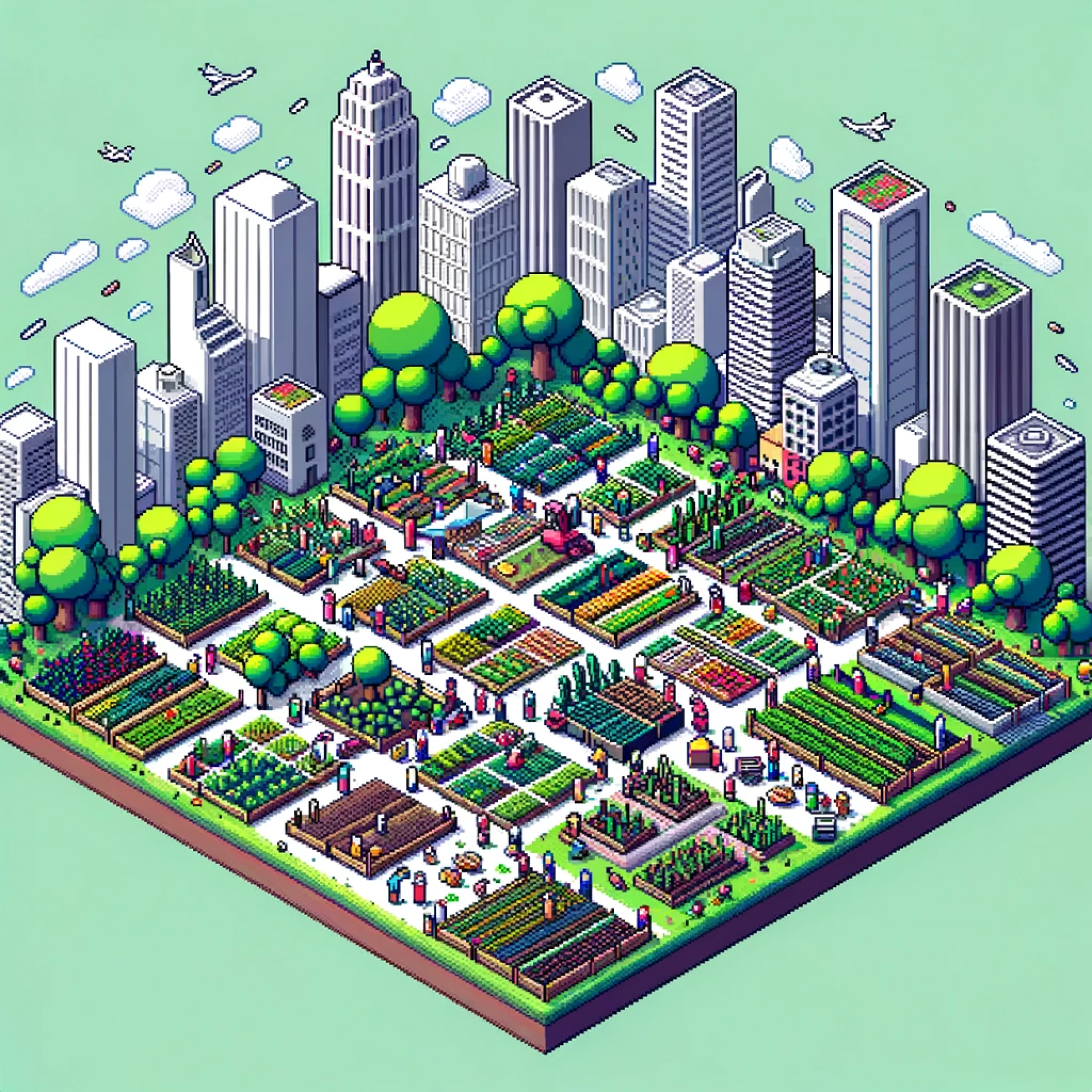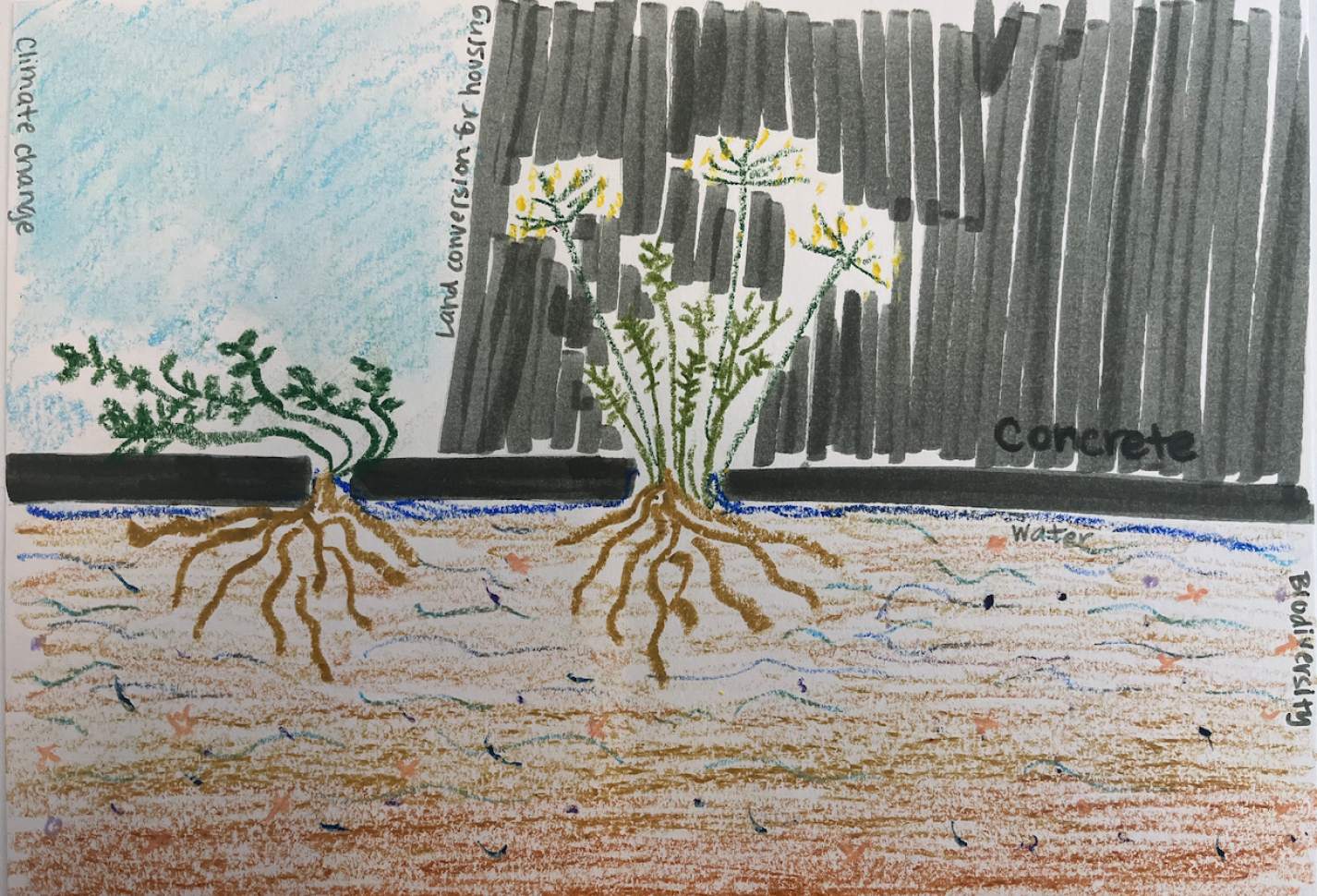The Melbourne Doughnut
Explore how well Melbourne is tracking as a place that supports people and planet to thrive.
Food
Food is a human right. It is essential to a healthy life, but it is also more than that: it connects us socially, culturally and with the place where we live. In Melbourne, food presents a gateway to connecting with both Country and each other. How we produce, distribute and consume food in our city has implications for the wellbeing of people and the planet.
Principles for Food in a regenerative Melbourne
Our food system in a regenerative Melbourne must be:
- Shaped to acknowledge and reflect that all food grown, shared and processed in Australia is on unceded Aboriginal land
- Reflective of Melbourne’s cultural values and diverse communities
- Resilient to the effects of climate change and other disruptions - local and global - that impact the system’s ability to thrive
- Participatory and (re)distributive to facilitate equitable social and spatial outcomes
- Designed for deliciousness and pleasure to enhance our individual and collective wellbeing
What we want
Production
Food made and consumed in Melbourne is sustainably produced and protects the rights of all those contributing to what we eat
What we're measuring
No sufficiently relevant data identified yet
Consumption
Everyone has secure access to sufficient, affordable, nutritious and culturally-appropriate food
What we're measuring
Proportion of households experiencing severe food insecurity
Circularity
Production and consumption of food products contribute to a circular economy and minimised waste
What we're measuring
Volume of food waste produced per capita per year
Placing Food in the system
Local to global connections
Melbourne’s food system is far from self-contained, and a representation of Food as a dimension of the Melbourne Doughnut is incomplete without acknowledging the nested nature of food production and distribution and associated investment and control:
- Food in Melbourne is part of a regional system, which needs to be strengthened to build its resilience and that of the natural environment that supports it.
- Planning and regulation at the state level guide social, economic and spatial food outcomes in Melbourne, including where and how food is made, distributed and consumed.
- Production and distribution of food is heavily controlled at a national scale, such as through federal labour and immigration policies and the influence of large corporates.
- Food circulates internationally, which gives it a global social and ecological footprint and exposes it to political, social, economic and environmental trends and disruptions.
Stories
Learn more
How was this dimension developed?
The Food dimension of the Greater Melbourne City Portrait, including the conceptual framing and data selection, has been developed in collaboration with sector experts from academia, government and industry. A detailed description of the City Portrait methodology is outlined in the About section of the website.
Where can I access the data?
Data for Food, along with the other Social Founation dimensions are available in the Social Foundations Dataset.
For Ecological Celing dimensions, see the Ecological Ceiling Dataset.
Where can I find more information on Food in a regenerative Melbourne?
The City Portrait is informed by extensive research and resources on Doughnut Economics and related frameworks, as well as sector-specific research associated with each dimension. More detailed research that has informed the Food dimension is available to explore via Altiorem's library.
How can I get involved?
To get involved with ongoing development of the City Portrait or learn more about Regen Melbourne, email alison@regen.melbourne



